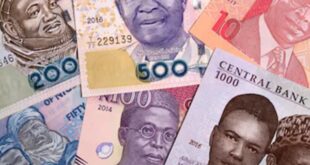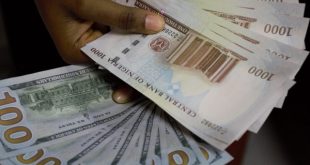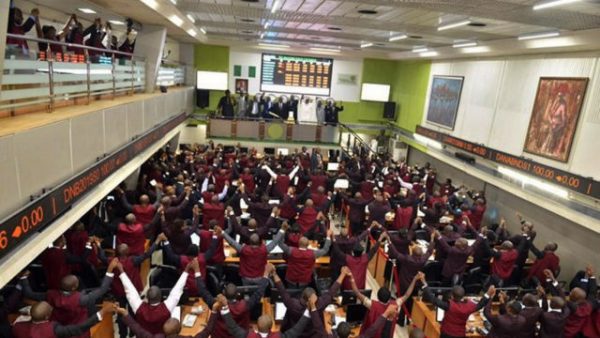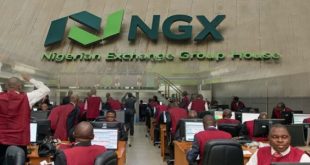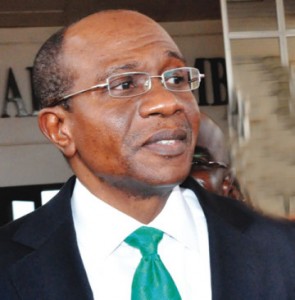
The Central Bank of Nigeria has raised the sum of N150.60bn ($756.78m) from treasury bills, with mixed yields compared with the previous sale last month.
Media reported the central bank as saying on Thursday that the yield on the three-month bill was stable at 10.09 per cent, the same as at the April 22, auction.
The CBN sold N45.17bn in the three-month paper.

A total of N23.43bn was sold in the six-month paper at 12.89 per cent, higher than the 12.80 per cent yield at the last auction, while N82bn worth of the one-year paper was sold at 13.39 per cent against 12.99 per cent last month.
Investors, mostly domestic banks and pension funds, submitted bids worth N329.97bn against N669.66bn at last month’s auction.
Meanwhile, analysts have said they do not see the naira recording any significant change in the near term as the central bank sustains its tight control over the local currency, though there have been some dollar flow from month-end sales by some oil companies.

The naira has held flat at 197 to 199 to the dollar since February when the central bank introduced controls to halt its rapid depreciation in the wake of a sharp fall in global oil prices.
Traders said each bank now depended on the dollar flows from oil companies to augment the supply from the central bank in order to meet their customers’ demand.
“We are looking forward to a change in policy direction by the incoming government because the forex market has remained low in activity since the introduction of controls by the central bank,” one dealer said.
Traders said the central bank was selling dollars at the interbank market at irregular intervals to sustain the exchange rate at the present level.
The Head, Investment and Research, Afrinvest West Africa Limited, Mr. Ayodeji Ebo, said crude oil price would determine the faith of the naira in the short and medium term.
Also, the Zambian kwacha is expected to firm in the coming week due to reduced liquidity and dollar inflows into next Thursday’s Treasury bill auction from investors abroad.
The currency of Africa’s second-largest copper producer was quoted at 7.3500 per dollar, stronger than 7.4500 a week ago, Thomson Reuters data showed.
“We have seen a significant reduction in demand for dollars. With most players having kwacha obligations, we could see a continued sell-off of dollars,” said a trader with a commercial bank.
“The treasury bill auction next week could also attract off-shore players, giving the Kwacha support,” the trader said.
Ghana’s cedi should hold its ground this week, but could slip a little if corporate demand for dollars picks up, analysts said.
On the interbank market, the cedi traded at 3.8700-3.8900 to the greenback on Thursday, largely unchanged from 3.8700-3.8800 levels a week earlier.
“We expect trading patterns to follow in similar direction as corporate demand for the dollar remains steady in the face of relatively lower inflows,” Joseph Amponsah of the Accra-based Dortis Research said.
Ghana, which exports cocoa, gold and oil, started a three-year financial aid programme worth $918m with the International Monetary Fund in April to help fix its fiscal challenges and shore up the cedi, which is down around 18 per cent since January.
 MMS PLUS NG – Maritime, Aviation, Business, Oil and Gas News Online Newspaper with coverage in Maritime, Oil and Gas, Aviation, Power and Energy as well as Financial News
MMS PLUS NG – Maritime, Aviation, Business, Oil and Gas News Online Newspaper with coverage in Maritime, Oil and Gas, Aviation, Power and Energy as well as Financial News



